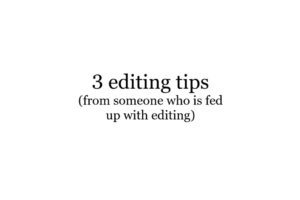Mind control is commonly featured in dystopian novels as a way of forming a totalitarian state, yet most readers tend to assimilate themselves with the rebel of the story rather than with characters who are easily brainwashed. Those who are susceptible to influence are often viewed in a similar fashion to the blonde, pretty victims of horror films, for how could they not see past such obvious persuasive techniques?
The thing is, mind control is a tool that has been perfected over thousands of years and is incredibly reliable. The need for control is embedded in our behaviour as it provides power, which could best be described as universal and timeless currency. So if mind control is so commonly used, what methods are the most successful?
Probably one of the most common forms of mind control is via the ruse of ‘education’. When we are young we are more vulnerable and susceptible to persuasion and are much less likely to dispute figures of authority. For example, there are schools in America that openly teach children that the concept of dinosaurs is nothing more than ‘empty rhetoric‘ and there is an ongoing proposal in China to launch a curriculum that imposes communist and nationalist teachings on all students. Schools also commonly instil a strong sense of uniformity on their pupils that could be considered unnatural and oppressive in order to gain control of high numbers of children.
If the subjects are too old to manipulate, the use of drugs is a widely used form of mind control. Addiction is often exploited for the means of persuasion and, as an increasing number of the public are becoming medicated for a host of newly diagnosed disorders, the natural indicators of an unhealthy and poorly functioning society such as anxiety and depression are being numbed with narcotics. On top of this there are a host of drugs available that can be used to control the mind. Let’s also not forget the infamous MK Ultra programme.
Then we have the use of cults, religious groups and the paranormal as ways of controlling those seeking guidance, self-control or some sort of authoritative figure. From the early use of witch doctors to the relatively new force of Scientology, humans have always craved the presence of a higher being with the ability to erase mistakes and flaws. There are countless examples of this form of control as it doesn’t require any resources other than charisma and charm.
For me one of the most interesting form of mind control comes from the media. There are so many techniques that are openly used by the media that it almost looks like we enjoy being manipulated.
I think it’s fair to say that no one is truly free of some form of mind control. We’re all susceptible, whether we’re persuaded to buy a certain product or whether we believe that 2+2=5. But is this a bad thing? It can feel quite overwhelming to think that we are being openly controlled, but is this just a natural state for humans? Or have we simply evolved to accept it?



Leave a Reply